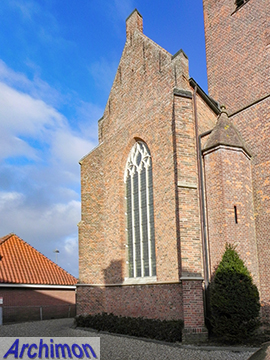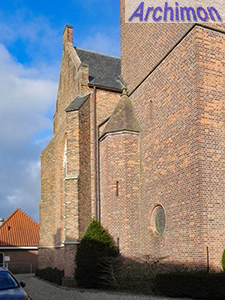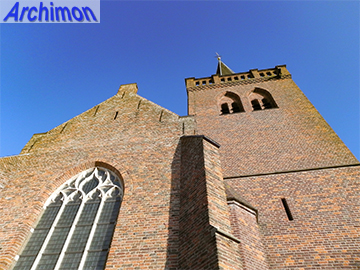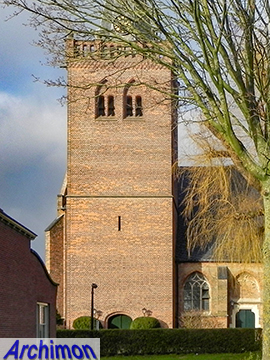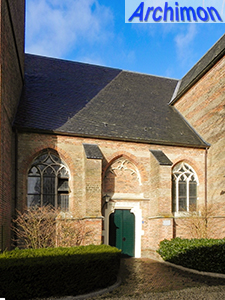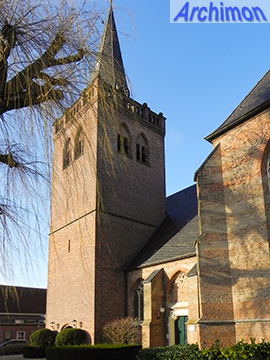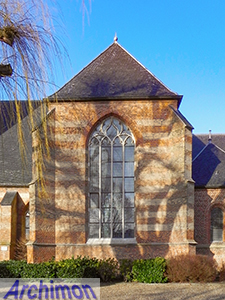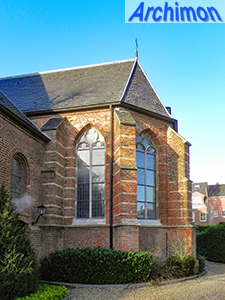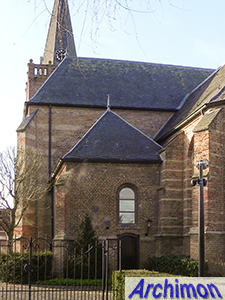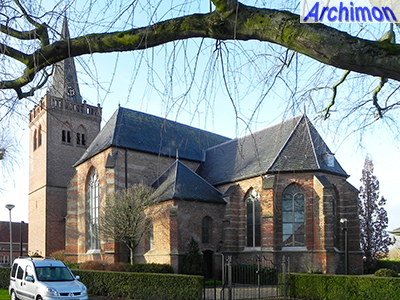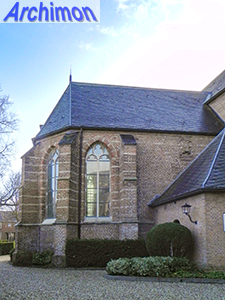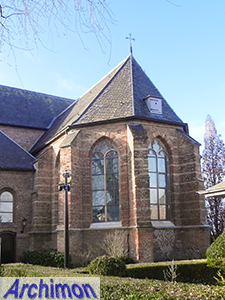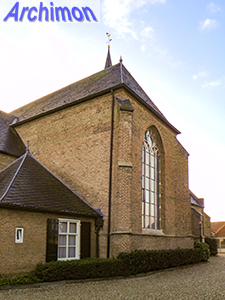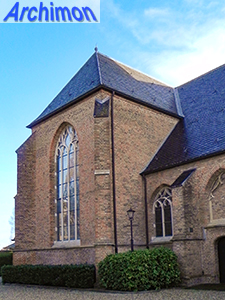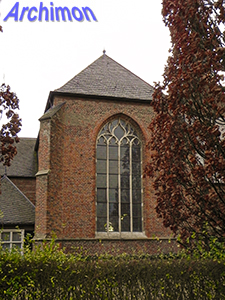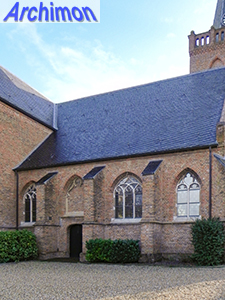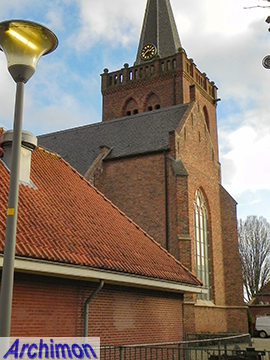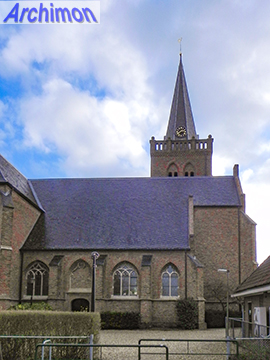
Opheusden (G): reformed church
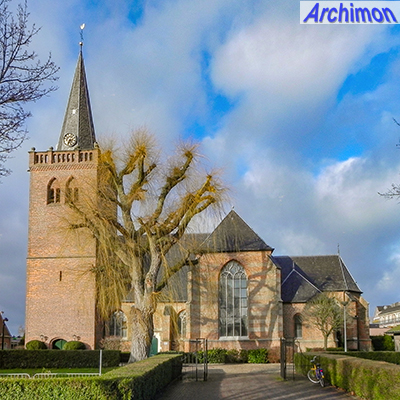 Although the history of the church of Opheusden dates back to the 11th century, very
little is known about the original church except that was a daughter church of
the Wageningen parish and consecrated to St. John the Baptist. In the 14th century a tower was built
which may or may not have been part of an older church or the beginning of a
whole new church.
Although the history of the church of Opheusden dates back to the 11th century, very
little is known about the original church except that was a daughter church of
the Wageningen parish and consecrated to St. John the Baptist. In the 14th century a tower was built
which may or may not have been part of an older church or the beginning of a
whole new church.
Today's church is a cuiciform pseudo-basilica in late-Gothic style. Its oldest part is the late-15th century choir. The sacristy at its south was built in the same century. In 1524 the construction began of the transept and nave, both distinctly higher than the choir. All these parts of the church were built of brick with lines of tuff at all sides of the choir but only on the south side of nave and transept. While the north side-aisle was four traves long, the southern aisle only had three.
As completed, the church was catholic for only a few decades. In ca. 1600 the last catholic priest became the first protestant pastor, and most of the village followed suit. Eventually catholicism completely disappeared from the village.
The church suffered badly in WW2, with Opheusden having been in the frontline in May 1940 and in October 1944. In May 1940 the tower, which had just been restored in the 1930's, was blown up for strategic reasons, destroying part of the nave as well. By September that year already plans to rebuild the tower and restore the rest of the church were announced, but for the meantime architect J.G.A. Heineman could only secure the remaining parts of the church.
The restoration was eventually carried out in three stages between 1949 and 1960. Plans had changed by then. Instead of restoring the church to its pre-war state, it had been decided to take the opportunity to extend the nave with the space formerly occupied by the tower. A new tower, inspired by the old one but not the same, was built at the south side instead, in the corner between the extended nave and the southern side-aisle.
For centuries the church belonged to the Dutch Reformed Church, but when in 2004 the congregation refused to become part of the united protestant church of the Netherlands PKN, it joined the Restored Reformed church (HHK) instead.
